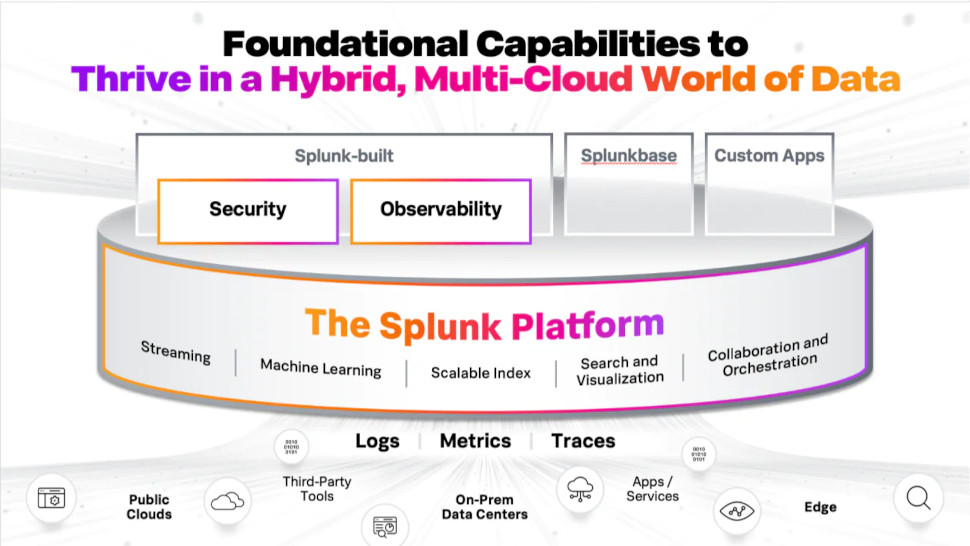As businesses of all sizes look to recover and thrive following the pandemic, getting the most out of their data will be critical. But in an enterprise world rapidly moving towards hybrid working and cloud-first approaches, finding the most effective way to do that can be a significant challenge.
Splunk has long positioned itself as a key helper for businesses looking to streamline or upgrade their data capabilities, and revealed a number of new releases and updates at its recent .conf 21 event designed to do just that.
But the company wants to do a whole lot more for its customers, so TechRadar Pro went to find out more.
Cloud-first
"The way we see it playing out is when our engineers build, everything we build, we're building in the cloud first,” Shawn Bice, President of Products and Technology at Splunk, told TechRadar Pro.
"Our mental model is that you build for the cloud first, and then you're testing these bits out all the time, and then every six months or so you turn the crank, and you package up a corresponding set of bits that you deliver on-prem. That allows us to be constantly building in the cloud, whether it be a Google environment, an Amazon environment, or an Azure environment, because those environments are different. They're not all universally the same.”
"Multi-cloud and hybrid is a real thing - I have customers that when they spend money, they're spending money across Google, Amazon and Azure, but they might not spend the equal amount of money.”
“But they're leveraging big cloud providers in a way where they pick the best tool or they get the best pricing - and there's hybrid or on premise in the mix, too. So you know, so when you meet somebody, they'll tell you, 'Hey, I got data across multiple clouds, it's on prem, I'm now doing the edge' - and they want Splunk to be there with them, wherever their data is."

One way Splunk is looking to not just keep current customers, but also lure in new ones, is through the introduction of workload pricing. This will mean customers can buy based on the exact infrastructure used to deliver services, meaning no one should pay over the limit.
Bice notes that such an approach has been around for some time, but few companies are offering it.
"When people learn about workload-based pricing, they love it,” he notes, “it's about storage, and compute, just like anything else that you would buy up in the cloud. So from that regard, I think, pretty much I would expect everybody to switch over to this because the economics are just better."
“The more customers that are able to take advantage of that, they're just going to be saving, and that's a good thing to do for people. So I always like to remind people that it's not necessarily a new shiny feature, but it's going to be better economics for you and you're going to be able to get more out of the system, spend less and that's just a good thing for any business.”
Working for the long term
Splunk has launched some intriguing new features and additions to its portfolio, including new Ingest Actions that allow customers to action data in motion, and a boosted Federated Search feature that provides a unified search experience across all deployment types in a single search bar, allowing users to track down the exact data they want.
Post-pandemic, Bice notes that, remote working boils down to one issue for most customers: “they just want everything to work”.
"So if you have to build technology in a slightly different way, realizing that the way people are interacting with it is slightly different,” he adds. “You know, those are things that you just do. I don't think anybody here believes that the pandemic is a common goal kind of thing. I personally think its maybe changed the workforce for the long term."
But Splunk is enthusiastic about what its new offerings can provide for customers, with Bice, who only joined the company recently after spells at AWS and Microsoft, noting the opportunities the new tools provide.
"I would never assume just because you feel something, people will come,” he says, “I've made that mistake once or twice in my career...I definitely recognize a lot of these customers have their own businesses to run, they're not waking up each and every day wondering what we did. So I think part of our job is to make sure we understand... what customers are trying to do."
Looking to up your data game? Here's our pick of the best Business Intelligence (BI) tools around
No comments:
Post a Comment